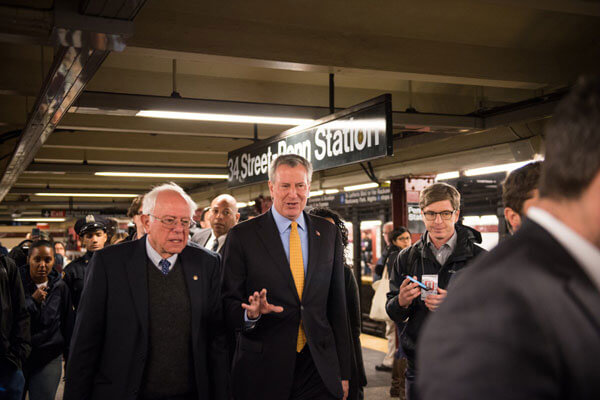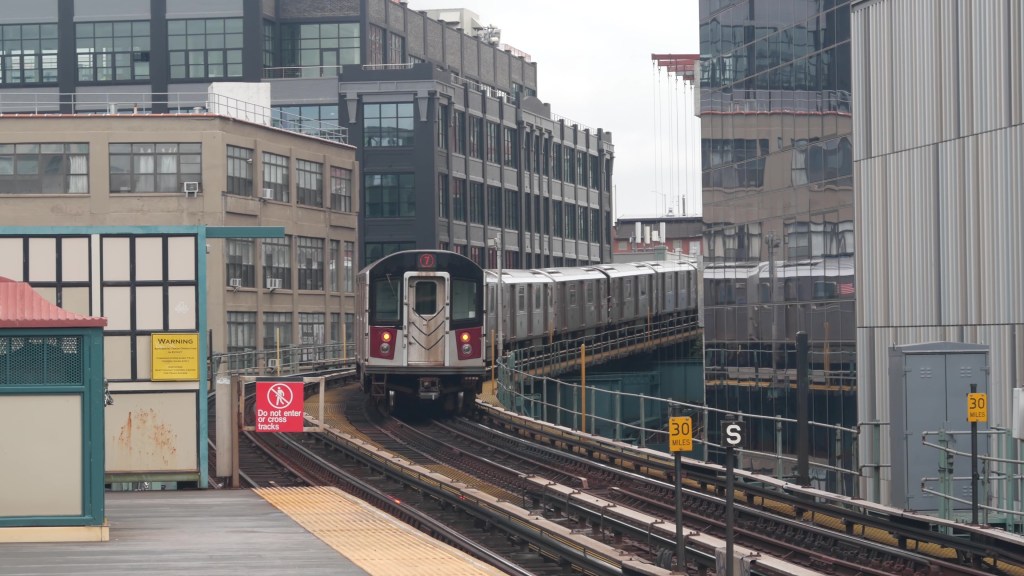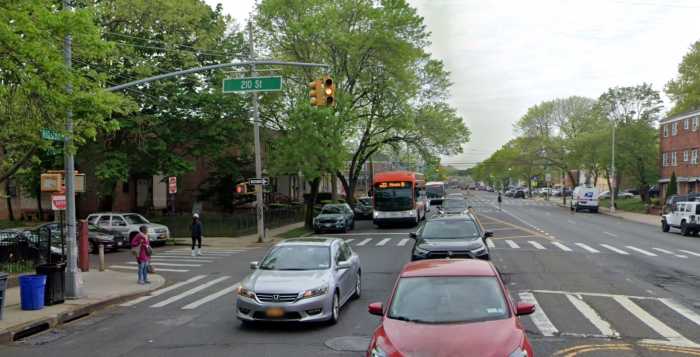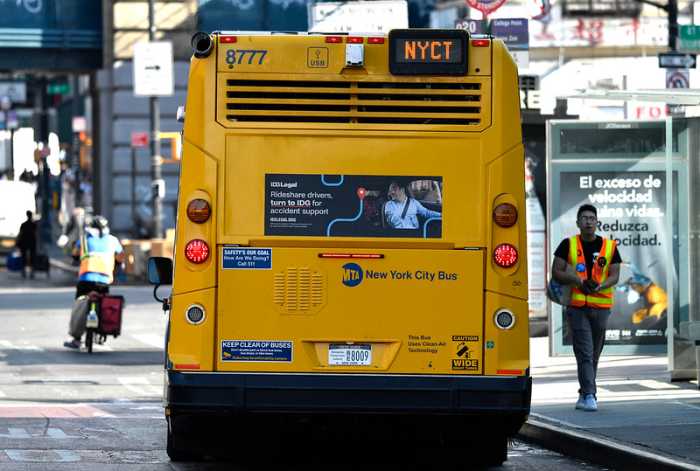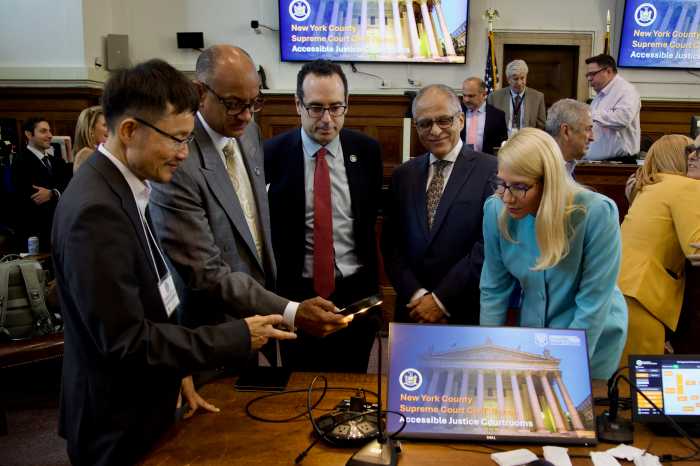By Mark Hallum
Mayor Bill de Blasio stood with U.S. Sen. Bernie Sanders (I-Vt.) in downtown Manhattan Monday to announce support for the incumbent’s re-election and to back the proposal from City Hall to implement an income tax hike on the wealthiest New Yorkers to create a dedicated revenue stream for the MTA and reinvigorate the subways.
The proposal would increase income tax rates from 3.876 percent to 4.41 percent on individuals making salaries of $500,000 and married couples earning a combined income of $1 million. The increase is only projected to apply to about 0.8 percent of New Yorkers, or 32,000 total residents.
“The MTA, as everyone knows, is run by the state of New York. The MTA has been plagued with challenges for a long time. But to be fair to the MTA, the MTA never had the resources it deserved,” de Blasio said. “We need a long-term funding stream. We need a verifiable, consistent funding stream. And, my friends, I know where the money is. I know it, we all know it. Those who have benefited so much in this society have the resources. It’s time for them to pay a little more, and to them I assure you it’s just a little more, so the rest of us can get around.”
The state has brushed aside consideration of the mayor’s millionaire tax proposal in favor of congestion pricing, which would mount a surcharge on cars entering Manhattan during certain hours. MTA Chairman Joe Lhota said the millionaire’s tax would not immediately fund the state agency with tax season still in the offing and straphangers experiencing daily meltdowns.
“The American people are sick and tired of seeing the people on top doing phenomenally well, of seeing the gap between the very, very rich and everybody else growing wider,” Sanders said. “People demand justice and asking the top 1 percent in this city to pay a little more in taxes is so we can create jobs, we can create comfort here, we can recreate reliability.”
He added, “When somebody has to get to work, they have a right to know that their mass transportation is going to work and get them there on time. And a little bit of a tax for the people on the top can do that and create thousands of jobs at the same time.”
The former presidential candidate came out in opposition to the concept of congestion pricing, the details of which he admitted to lack knowledge of, but said any plan where the expense falls upon working families he opposed.
Congestion pricing has been widely criticized in Queens by elected officials who believe it places an unfair burden on their constituents, who are drivers, and limits outer borough access to the more affluent Manhattan.
“Now we happen to be here in a subway station that’s just a few blocks from Wall Street. You go outside and walk a few blocks away you will see the offices of the millionaires and billionaires who dominate this nation. And they have benefited from a tax code written for them. It’s a matter of fact,” de Blasio continued. “I don’t begrudge anyone hard work, I don’t begrudge anyone’s success. But I like to be honest. They got a lot of what they got, because of laws that benefited them specifically and tax laws written for them. Why don’t we write our tax laws for the average New Yorker?”
De Blasio and Sanders were also joined by city DOT Commissioner Polly Trottenberg and state Sen. Michael Gianaris (D-Astoria), who drafted his own proposal for funding the MTA similar to the mayor’s.
Gianaris introduced his “Better Trains, Better Cities” legislation in June, which would establish an emergency manager to oversee the maintenance and operation of MTA trains and create a temporary, dedicated revenue stream to fund urgent repairs. The proposal would create a temporary, three-year surcharge on personal income taxes for those in the MTA region earning more than $1 million annually, as well as on New York City hotel and motel taxes. It is estimated that the two surcharges combined would raise more than $2 billion annually, which would be dedicated exclusively to maintaining and upgrading the MTA system at the discretion of the emergency manager.
Reach reporter Mark Hallum by e-mail at mhall

